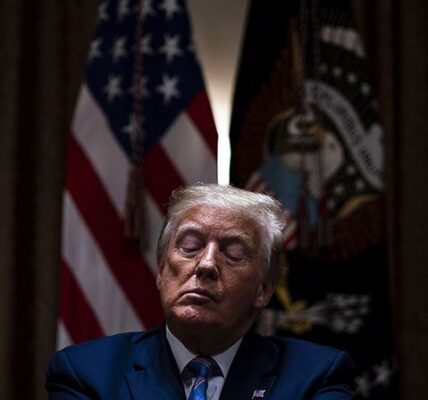President Donald Trump’s recent decision to impose a 104% tariff on Chinese imports has sent shockwaves through the global economy, raising concerns about potential repercussions for the United States. This aggressive move aims to address longstanding trade imbalances but has sparked fears of escalating tensions and economic instability.
China’s Retaliation

In response, China has announced an increase in tariffs on U.S. goods, raising duties from 34% to 84%. Additionally, Beijing has imposed restrictions on 18 U.S. companies, primarily in the defense sector. These measures underscore China’s commitment to defending its economic interests and signal a deepening of the trade conflict between the two nations.
Impact on Global Markets
The imposition of these tariffs has had immediate effects on global markets. Oil prices have experienced significant declines, with Brent crude futures dropping by 3.76% to $60.46 per barrel and U.S. West Texas Intermediate crude falling by 3.98% to $57.21 per barrel. These price movements reflect market anxieties about reduced demand and broader economic implications stemming from the U.S.-China trade dispute.
Domestic Economic Concerns
Domestically, the U.S. stock market has reacted negatively to the tariff announcements. The S&P 500 and Nasdaq Composite have both seen substantial declines, exacerbating fears of an impending recession. Economic experts warn that the tariffs could lead to increased inflation and supply chain disruptions, further straining the U.S. economy.
Potential for Policy Reversal
Amid mounting pressure from financial markets and economic advisors, there is speculation that the Trump administration may reconsider its tariff strategy. Veteran strategist Marko Kolanovic suggests that the administration might roll back some tariffs to mitigate economic fallout. However, he cautions that the damage to markets may have already set in, with long-term consequences that could rival those of the 2008 financial crisis. citeturn0news18
Conclusion
While the intention behind the 104% tariff on Chinese goods is to rectify trade imbalances, the immediate and potential long-term effects on the U.S. economy are cause for concern. The escalation of the trade war with China poses risks of increased consumer prices, market volatility, and broader economic downturns. As the situation develops, it remains to be seen whether the administration will adjust its approach to avert further economic instability.



